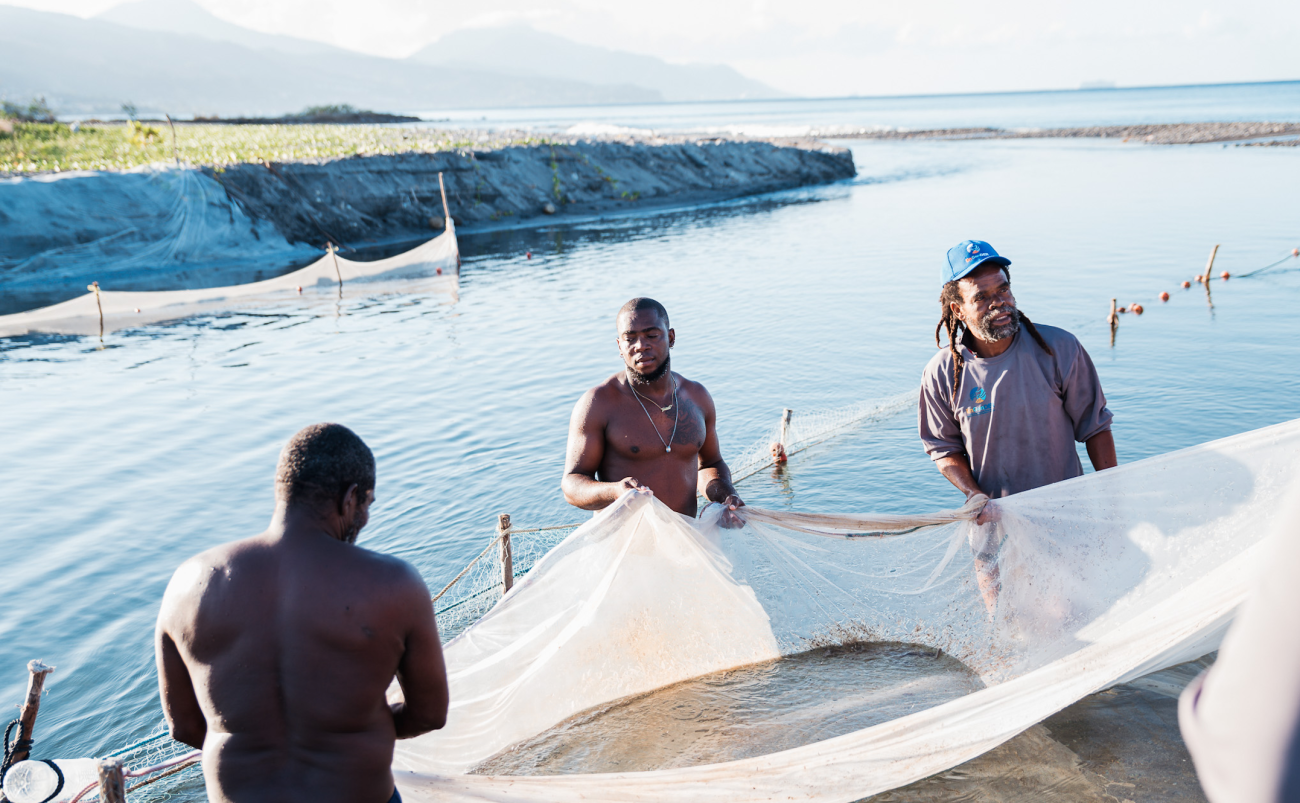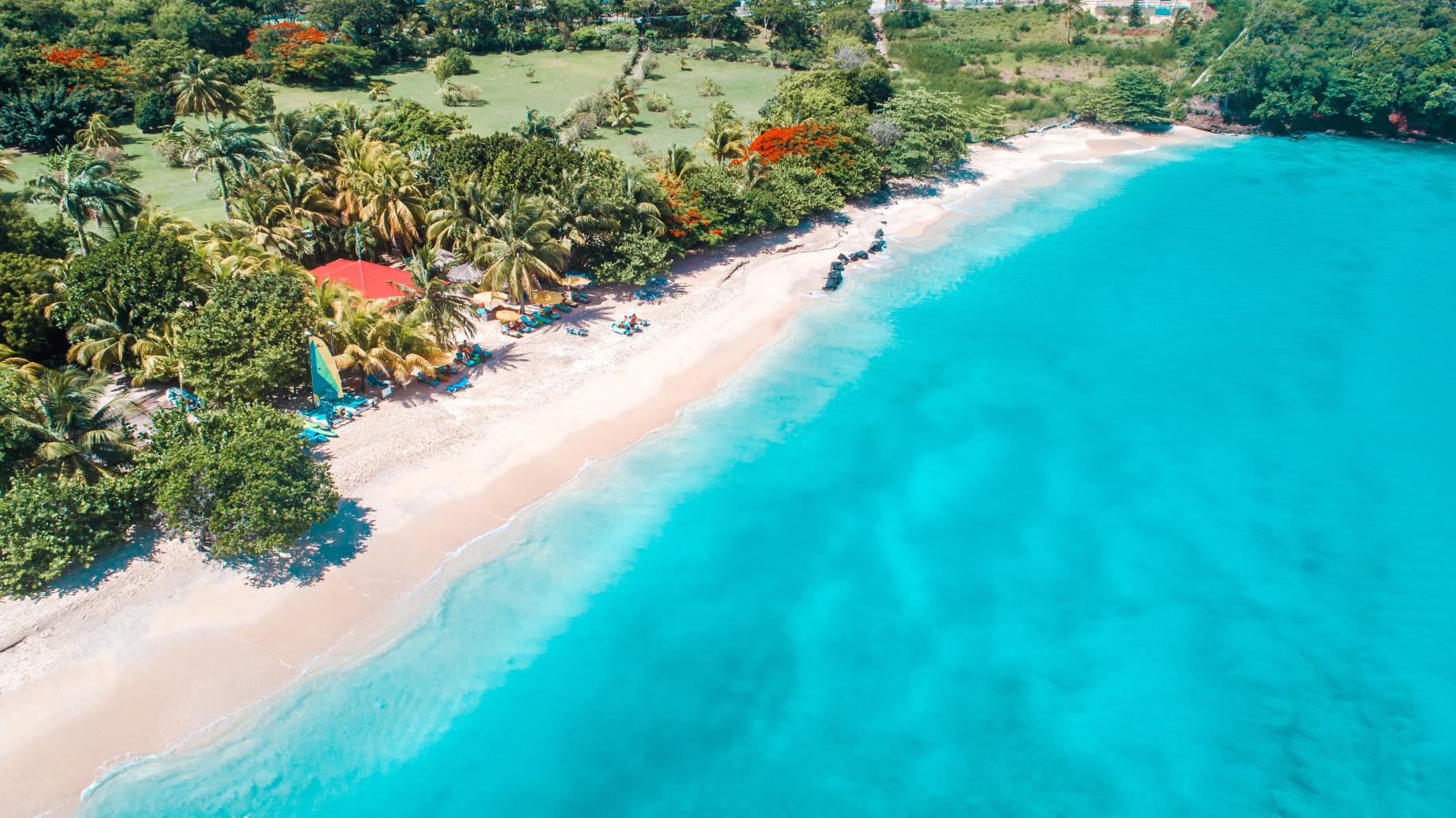Harnessing Blue Finance in the Caribbean

Caribbean islands have been traditionally viewed as playgrounds of the rich and famous due to its pristine beaches and crystal blue oceans. In lieu of this, regional Governments, with the support of the United Nations, are exploring ways to maximize the ‘Blue Economy’ to promote economic recovery and growth while conserving natural resources.
For a region which is home to more marine space than land territory, and is contending with the challenges of undiversified economies, limited fiscal space, rising unemployment, and burgeoning debt, the pursuit of economic diversification through Blue Growth and the sustainable use of ocean resources is an important step in the right direction.
“As vulnerable Caribbean Small Island Developing States (SIDS) continue to grapple with multiple shocks and emerging threats, including climate change and the triple crises of food, fuel, and finance, through the Harnessing Blue Economy Finance for SIDS Recovery and Sustainable Development Joint Programme, we are helping countries to enhance livelihoods and promote economic growth,” says UN Resident Coordinator for Barbados and the Eastern Caribbean, Didier Trebucq.
Under the Resident Coordinator’s leadership, and through the collective efforts of participating UN Agencies, UNDP, the lead Agency, FAO and UNEP, the Joint SDG Fund- supported programme has laid the foundation for financing a sustainable Blue Economy in Barbados, Grenada and Saint Vincent and the Grenadines.
Despite the disruptions of the COVID-19 pandemic, various hurricanes, and the eruption of the La Soufriere volcano, phase one of this two-year initiative has already made tangible progress in placing pilot countries on the path towards a sustainable financing and policy framework.
Unearthing the hindrances to Blue Economy Financing
The first step in financing this integral driver for resilient economic recovery and growth in the Eastern Caribbean, was to conduct baseline research which identified key constraints, policy gaps and institutional shortcomings to Blue Economy development, including for example debt-service obligations.
Following this, the UN country team presented recommendations to overcome these challenges and support delivery of Blue Economy initiatives. These included greater incentive-based private sector investment, public-private partnerships, and venture capital financing-an underdeveloped aspect in the region, as an alternative to conventional funding methods.
To boost awareness and comprehension of the potential of the Blue Economy among key stakeholders, the joint programme also held a series of trainings sessions. These also included technical assistance on project design, capacity building, and mobilization of international funding for Blue Economy development.
Development Finance Assessments (DFA) were also conducted for all three participating countries, with a view to support the creation of an Integrated National Financing Framework (INFF); a system which brings together and aligns different sources of financing to boost sustainable development and national priorities.

Developing the Fisheries and Aquaculture Sectors
Another major output of the Blue Finance joint programme was the development of a public and private sector Blue Economy Finance Strategy for the fisheries and aquaculture sector for Barbados, Grenada, and St Vincent and the Grenadines.
When speaking of Blue Economy growth in small island developing states (SIDS), the development of fisheries and aquaculture sectors is an integral part of the conversation.
With Caribbean countries boasting high fish consumption rates, the fisheries and aquaculture sectors of SIDS are under increased pressure to maintain supply of fisheries products, while being challenged by the increasing prevalence of severe weather phenomena and environmental decline.
These shocks adversely impact the industry either by limiting revenue or discouraging investment in this vital sector, thereby increasing the vulnerabilities of those most at risk of being left behind.
Recognizing this, the joint programme offers a range of nature-based solutions aimed at strengthening the management of marine and coastal environments and ensuring their ability to deliver different services to surrounding communities. The joint programme is also promoting schemes to increase capital including through blue and sovereign bonds, advance financial technology and encourage investment both from local and international sources.
Stronger Together
In keeping with the saying that ‘no man is an island’, the joint programme also supported the establishment and expansion of partnerships with a wide cross-section of stakeholders, including the private sector, academia, and development partners, to promote transformative change regarding the funding of the SDGs.
These partnerships have helped to harness UN capacity, resources, and assets to scale up SDG financing initiatives in the countries while also boosting collaborative knowledge exchange between across the UN country team and other development partners.
From facilitating public-private partnerships, establishing blue economy financing principles to integrating fisheries and aquaculture into the wider blue economy, this joint programme has highlighted that in order to fully harness potential of the ocean economy, there are a number of key pillars that must be simultaneously prioritized, and integrated into national development planning.
With these principles in mind, the Resident Coordinator’s Office and the rest of the UN country team in Barbados and the Eastern Caribbean are committed to turning this blue vision for the future into concrete action today.
This story was adapted from a version originally published by the Joint SDG Fund. To learn more about the work of the UN in Barbados and the Eastern Caribbean visit easterncarribean.un.org.













